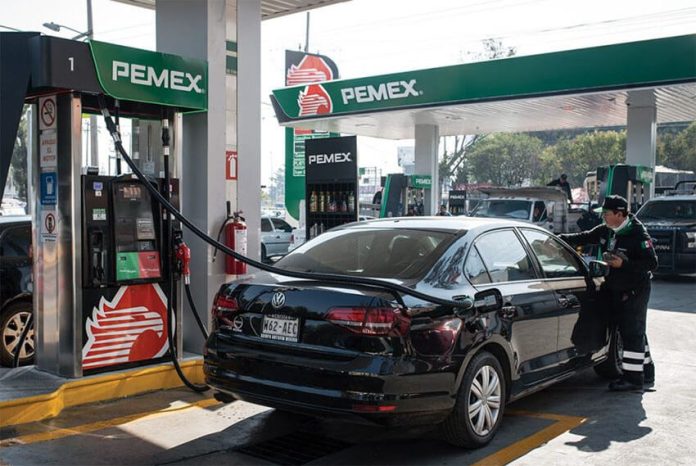Higher than expected oil revenue due to a recent increase in global prices will be more than eaten up by additional government subsidies to keep fuel prices down, according to a Mexico City-based think tank.
The Mexican Institute for Competitiveness (IMCO) estimates that the net cost to the government could be as high as 205.5 billion pesos.
In an analysis published Wednesday, IMCO considered three scenarios in which the average price for Mexican crude this year is US $70 (low), $90 (medium) and $110 (high) per barrel. The cost of a barrel of Mexican export crude – produced by state oil company Pemex – was just under $112 at the close of trading on Wednesday.
For each scenario, the think tank estimated surplus oil revenue and IEPS excise tax relief the government will provide to keep costs at the pump down. The government has recently covered 100% of the IEPS on gasoline and diesel, effectively lifting the tax.
In the low scenario, IMCO estimated that surplus oil revenue will amount to 5 billion pesos this year and fiscal stimulus will cost the government 124.3 billion pesos, yielding a net negative result of 119.3 billion pesos ($5.9 billion).
In the medium scenario, IMCO estimated that surplus oil revenue will amount to 122.7 billion pesos and stimulus will cost 277.6 billion pesos, producing a net loss of 154.9 billion pesos ($7.7 billion).
In the high scenario, the think tank estimated that additional oil income will total 247.1 billion pesos in 2022 and stimulus will cost public finances 452.6 billion pesos, yielding a net negative result of 205.5 billion pesos (US $10.2 billion).
IMCO said the net loss in the low scenario – almost 120 billion pesos – is similar to the entire 2022 budget for the Ministry of National Defense. The negative result in the high scenario is almost as high as the 2022 budget for seniors’ pensions, which is 226.5 billion pesos.
IMCO recommended that the government disseminate information about the extent to which it expects to subsidize fuel in the coming months as well as the factors that will guide its stimulus policy.
It also called on the government to provide detailed information about how higher oil revenue and fuel subsidies will affect the nation’s public finances.
The government’s federal deficit in the first month of the year was the highest for any January in six years due to a stagnation in tax revenues, including those collected via the tax on fuel.
Mexico News Daily
